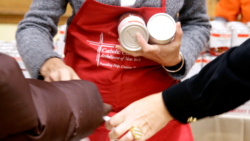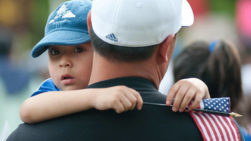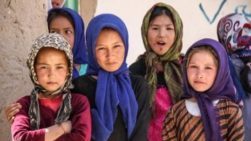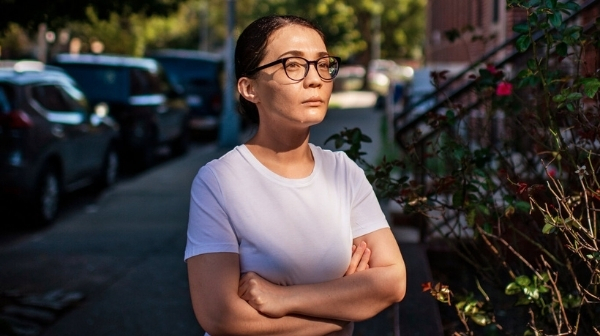Supporting Afghans After Evacuation
Nonprofit groups supported by The Times’s annual campaign worked to nourish, support, and welcome those seeking refuge. “When you’re patient and kind with someone who has left everything behind,” one New Yorker said, “the whole experience will be different.”
Days before Afghanistan fell to the Taliban, Batol Khan could not shake a sense of foreboding.
Ms. Khan, who left the country six years ago, warned her family to prepare for the worst: “If something happens, just grab your documents and run,” she said. “Don’t look back.”
Two days after the takeover, Ms. Khan’s mother and sister were among the crowds at the Kabul airport. They hid their money and passports in their undergarments. At times, Ms. Khan could not reach them and feared for their safety. But after five days of waiting in squalid conditions — then several days of traveling — they arrived in El Paso. When they are able to resettle, they plan to reunite with Ms. Khan in Brooklyn.
Their arrival in August was a relief for Ms. Khan, 33, who moved to the United States under a special immigrant visa. Ms. Khan had begun to feel vulnerable because she considered herself an outspoken woman, and had been working in Afghanistan with the United Nations and the United States Agency for International Development.
The day she landed in America, she was connected with Catholic Charities of the Archdiocese of New York, a beneficiary of The New York Times Neediest Cases Fund. The nonprofit group helped her secure medical insurance, a subway card and SNAP benefits. Agency workers also reviewed her résumé and conducted mock interviews to help her with her job search — support that Ms. Khan, who works in human resources, has not taken for granted.
“When you’re patient and kind with someone who has left everything behind, the whole experience will be different,” she said. “You know that you are in safe hands.”
Now, Catholic Charities is preparing to help her mother and sister with their resettlement. The organization has set aside $500 from The Fund to provide them with clothing, furniture, transportation assistance and other necessities.
In recent weeks, the agency has helped about a dozen people with special immigrant visas who have arrived in the city, said Mario Russell, the director of Catholic Charities’ immigrant and refugee services in New York. The number is likely to increase: More than 1,000 Afghans are expected to resettle in New York State over the next six months.
Like many refugees, one family that recently arrived was confronting a wave of contradictory emotions, Mr. Russell said, like disorientation, gratitude, relief and hope. “There’s a lot of challenge and sadness,” he added. “They’ve left their homes. They’ve left their neighborhoods. They’ve left their families.”
Ms. Khan said watching the Taliban’s takeover had been extremely painful. But after her family landed in Texas, she spoke with her sister, who emphasized a silver lining. “Isn’t it amazing that we are in the same country?” she asked Ms. Khan. “We’re basically breathing the same air.”
With that realization, some darkness gave way to a glimmer of light.
“I’m very grateful,” Ms. Khan said.
Catholic Charities is among nine beneficiaries supported by the Fund’s 110th annual campaign.
The Fund began in 1912, when The Times’s publisher, Adolph S. Ochs, sent a journalist to report about those facing hardship and receiving help from social services agencies in New York City. The goal was to publish 100 stories. The short articles struck a chord with readers, who donated about $3,600. Since then, The Times has worked with nonprofit organizations each year and has raised over $320 million in total, which has been distributed not just to organizations in the city, but also domestically and internationally.
Continue to The New York Times for the full article.
Those who want to contribute to the effort are asked to make donations to the Catholic Charities Emergency Relief Fund.












